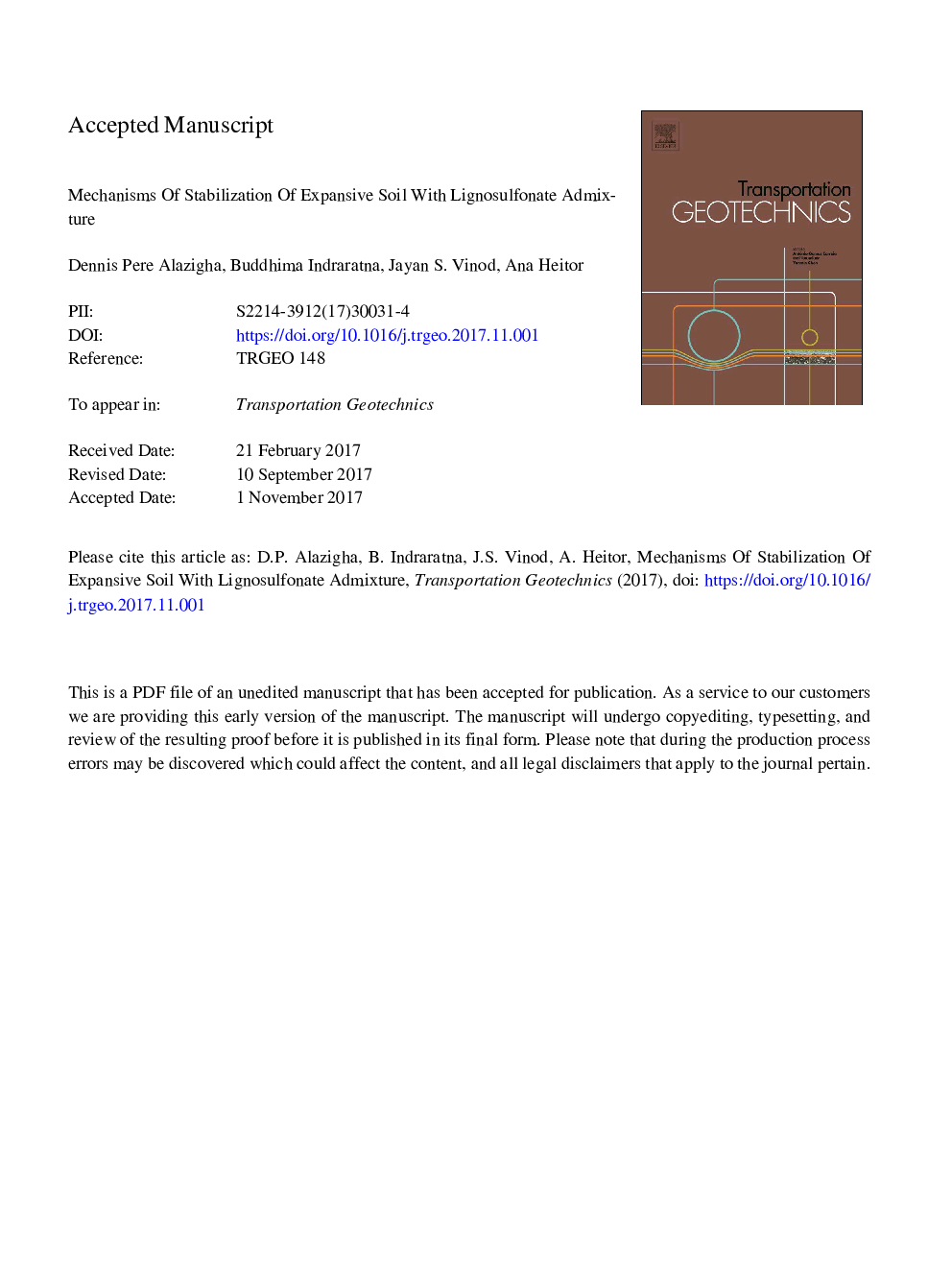| Article ID | Journal | Published Year | Pages | File Type |
|---|---|---|---|---|
| 6779478 | Transportation Geotechnics | 2018 | 45 Pages |
Abstract
The results indicated that the percent swell is intimately related to the amount of water that is adsorbed by the expansive clay minerals. Furthermore, the amount of moisture in an expansive soil is influenced by a small addition of organic (cationic) compound such as LS. The adsorption of LS on the mineral surfaces provided waterproofing effect on soil due to the hydrophobic nature of LS, which in turn contributed to a decrease in the extent of swelling of the otherwise expansive soil. The basal and peripheral adsorption of LS led to smearing and subsequent agglomeration of soil particles restricting water ingress into the soil body. In addition, the cationic exchange between the admixture and the soil particle surfaces (i.e. replacing the negative surfaces on clay lattices) prompted flocculation, which further decreased the soil's affinity to water.
Related Topics
Physical Sciences and Engineering
Earth and Planetary Sciences
Geotechnical Engineering and Engineering Geology
Authors
Dennis Pere Alazigha, Buddhima Indraratna, Jayan S. Vinod, Ana Heitor,
